Spatial
Dennis Byun Consumed and Controlled
-
School
The University of Auckland
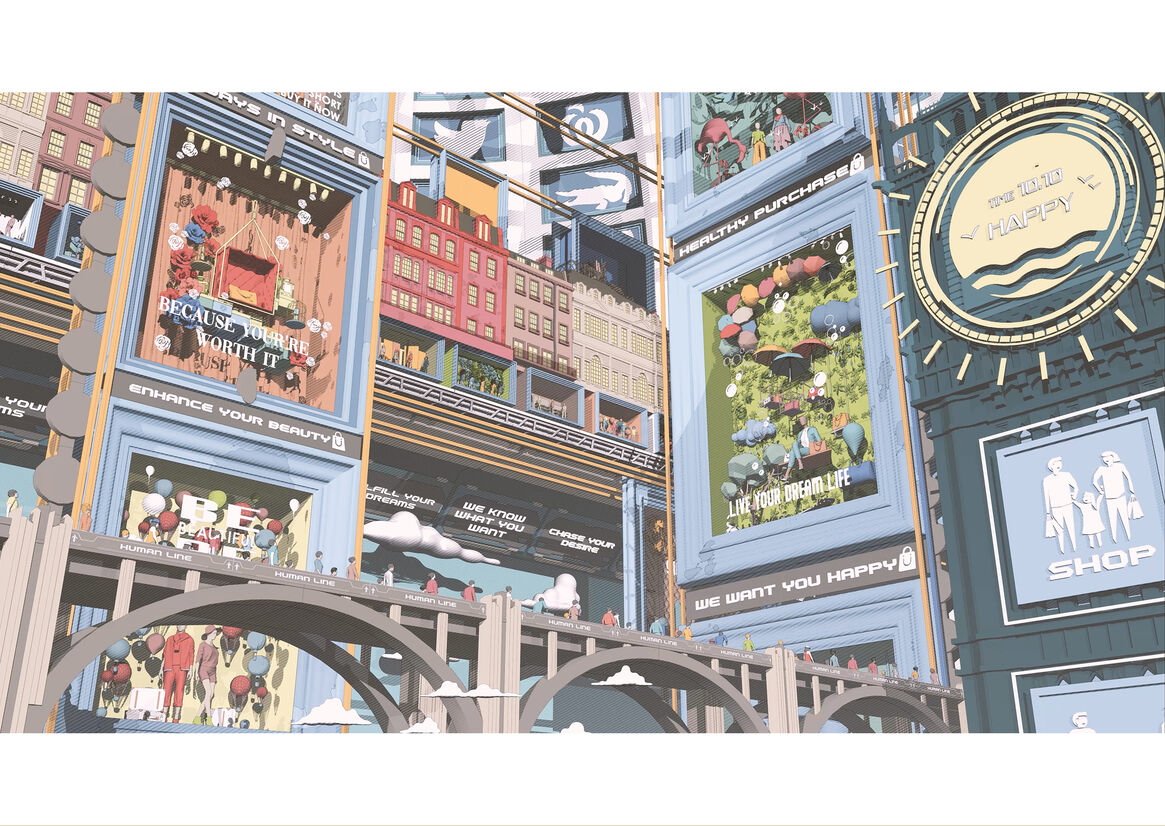
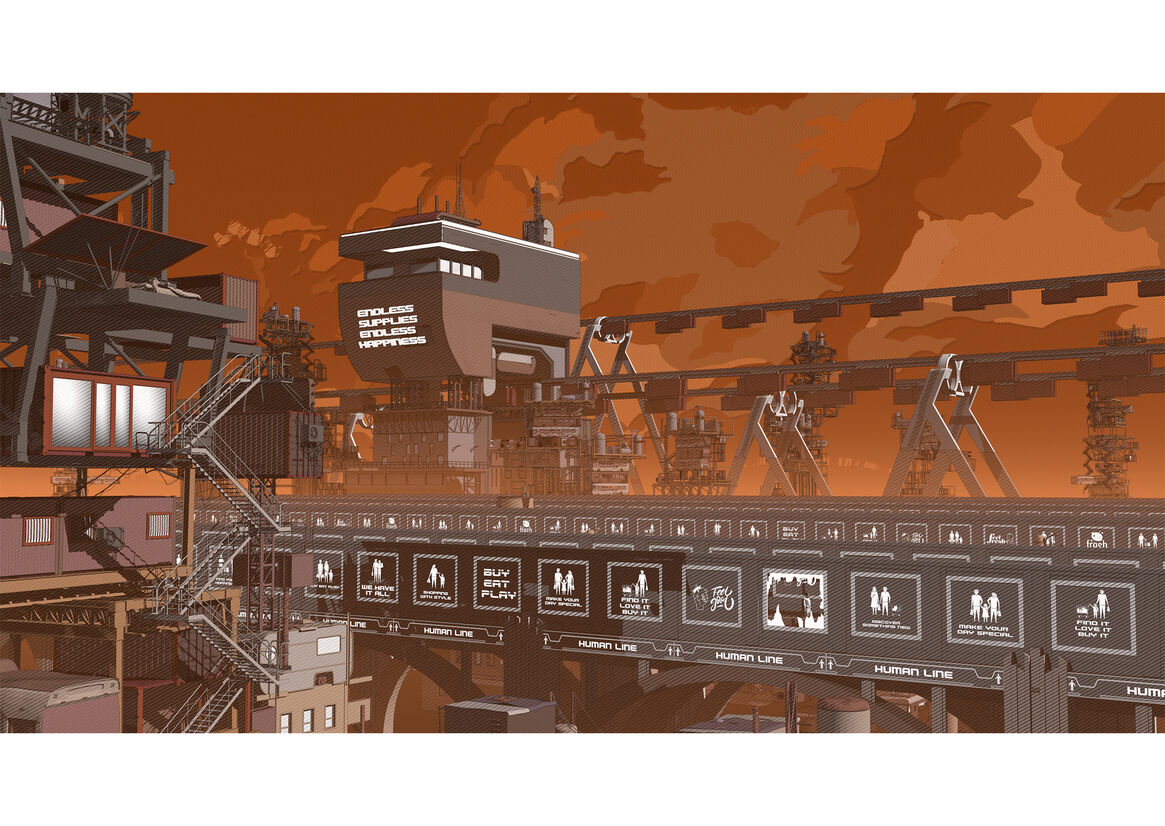
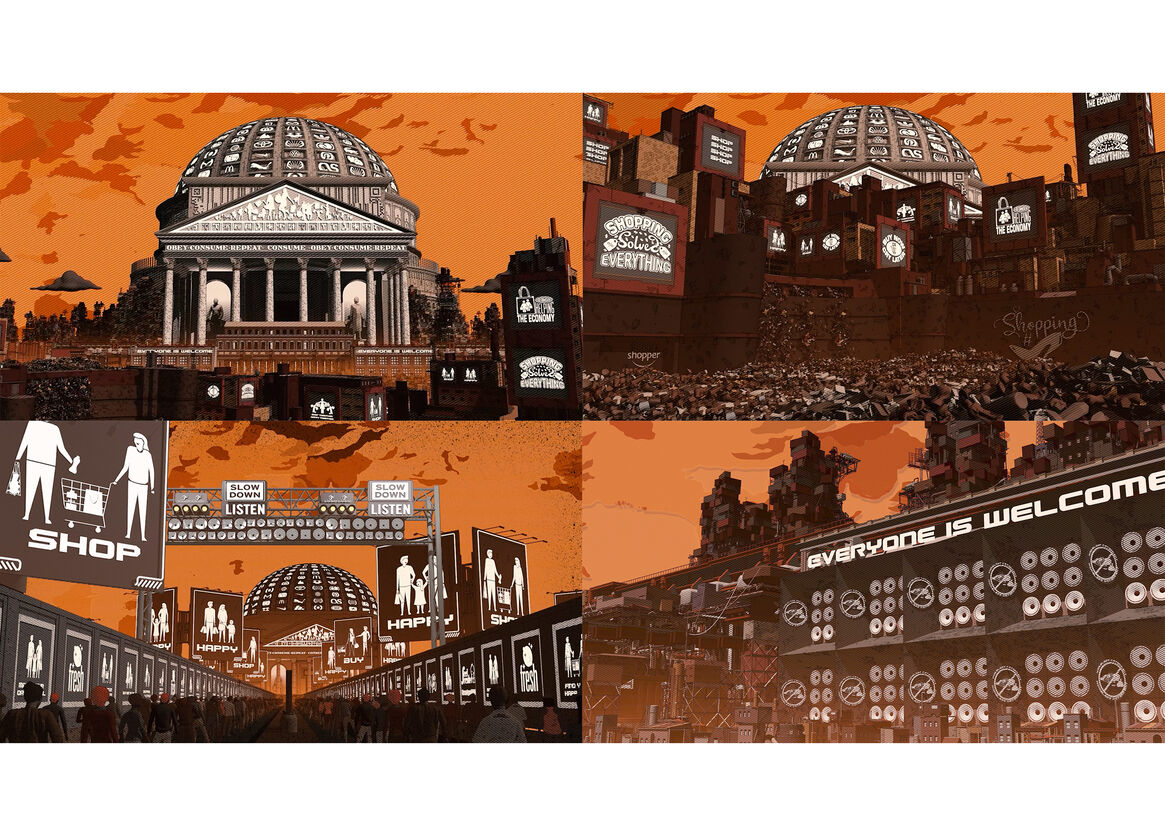
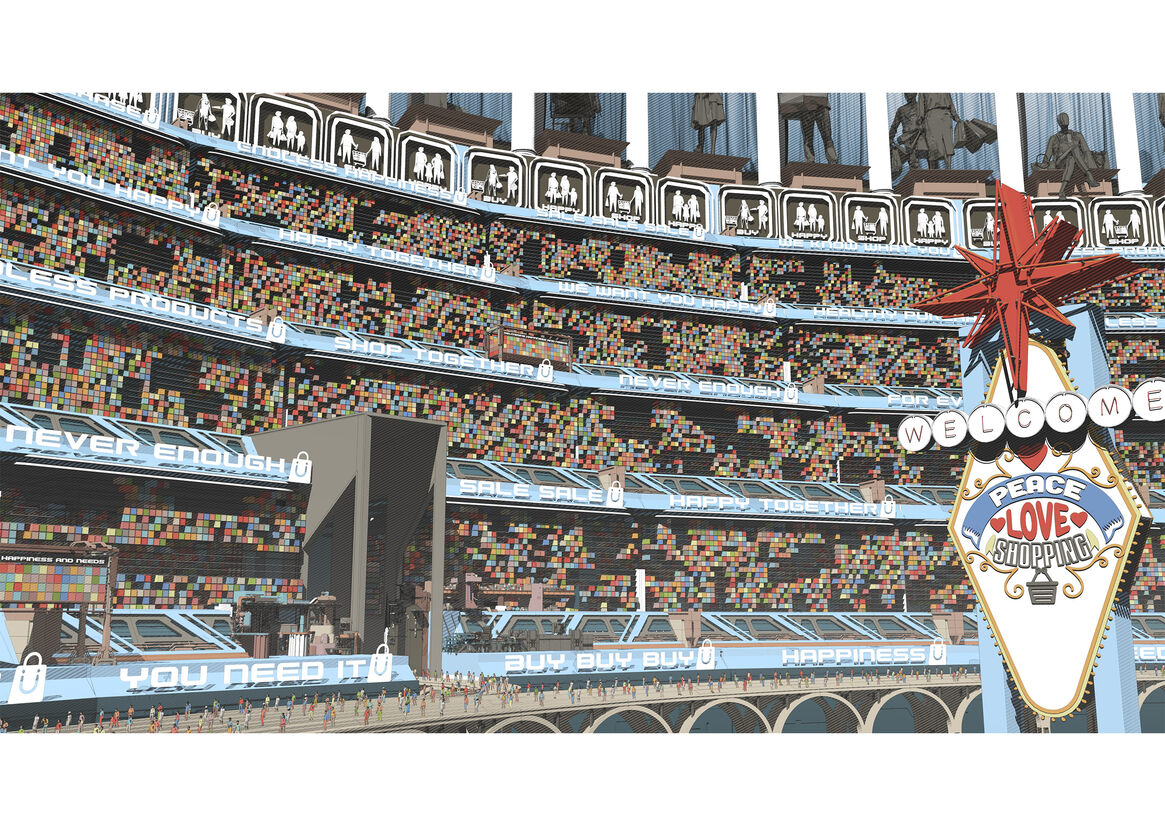
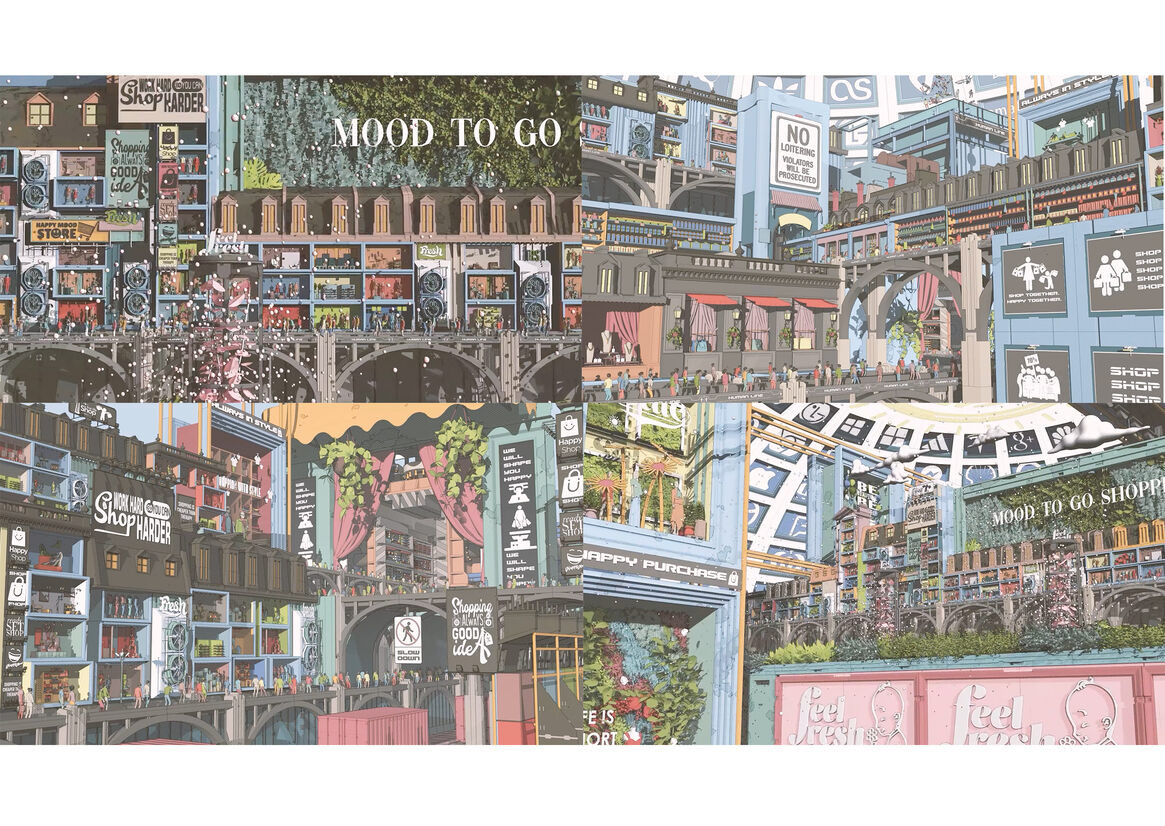
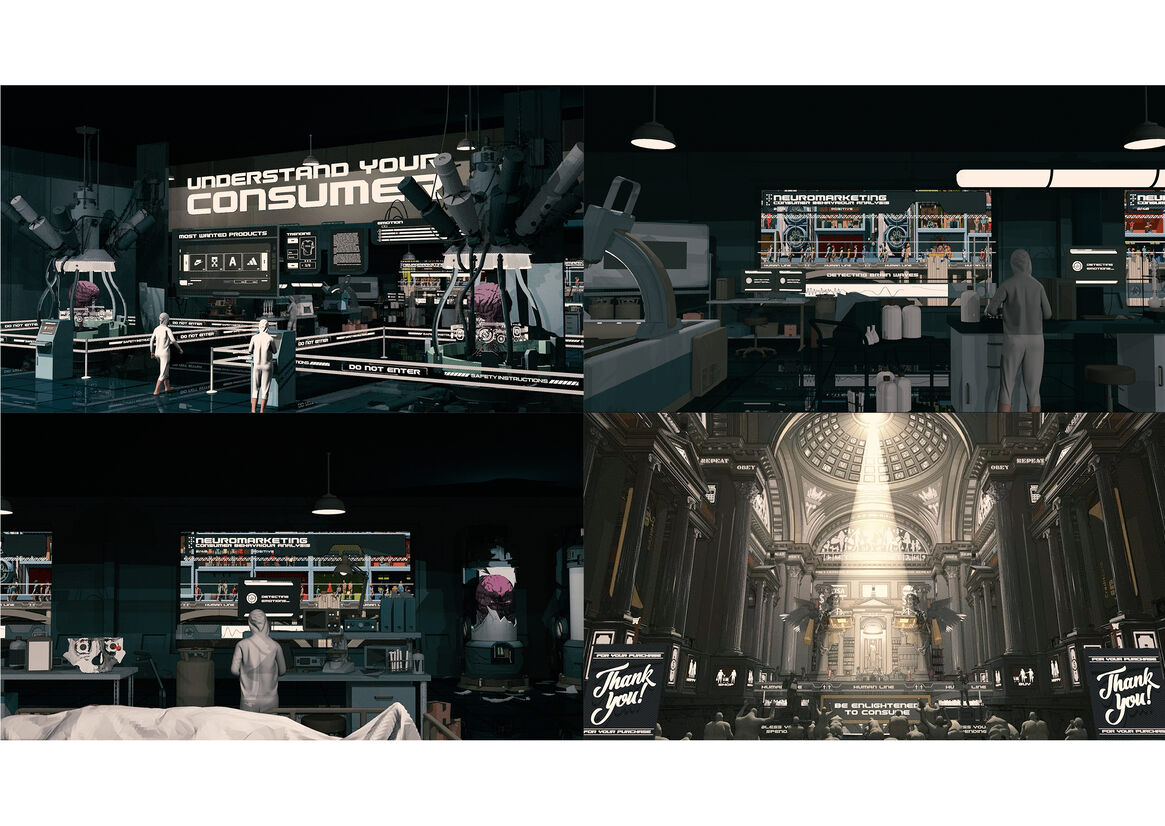
Description:
Is all architecture political? Yes, architecture is inherently political. In any event, architecture is never politically uninvolved. It is almost impossible to identify an architectural movement or “ism” that does not embody political expression. Architecture is the grandest and most permanent marker of civilisation. It involves agreement between people, it requires money and, time, and it is the most explicit and dramatic expression of a society’s relationship to politics. So, what era of the political system do we live in today? Today, we live in the age of hyper-consumerism - a world where an average child from a first-world country accumulates 238 toys by the time they are 10 years old, but they will only play with 12 of them. We are targeted by 2000 commercial messages every day to ensure we spend more than eight years of our lives shopping. “Whoever said money can’t buy happiness simply didn’t know where to go shopping.” The blame for overconsumption should not be placed solely on individuals: architects and architecture should be accountable for this too. Architecture today has evolved to meet the needs of consumerism. Consumerism’s effect on architecture is present throughout the research. The thesis suggests that we should reconsider the current political system of consumerism and question how our environment at both the macro and micro-scale has been changed to morph citizens into consumers. Consumerism has allowed the development of a new industry in our society, which measures our physiological and neural signals to gain insights into our customer decisions in different spaces. Today, architecture has started to alter our brain’s reactions and behaviours and convince us to spend more money. Profit-driven research understands our brains better than we do ourselves. The thesis asks how architects can decode inconspicuous/micro-political architecture in the world of hyper-consumerism. What are the potential future scenarios? Through the techniques often used in cinematography and short film, I wish to offer awareness of the inherent political power of architecture in consumerism. The short animation Consumed and Controlled envisions a dystopia that is not so far from reality. The dystopian imagination will be used as an educational tool that directly transports us into a terrifying world, warning us of the danger that the future holds if we do not recognize its symptoms in the present.
Judge's comments:
This project is a cutting critique of consumer culture. It is also a clever exploration of the role architecture (and in turn the architect) can, does and should play in our lives and associated politics. Visually dynamic and intentionally over-stimulating, this project asks important questions of both our society and us as designers.
Exploring ideas of the dominance of our consumer culture a world is created spatially and visually, layered with commentary and meaning and presented in multi-media to great effect